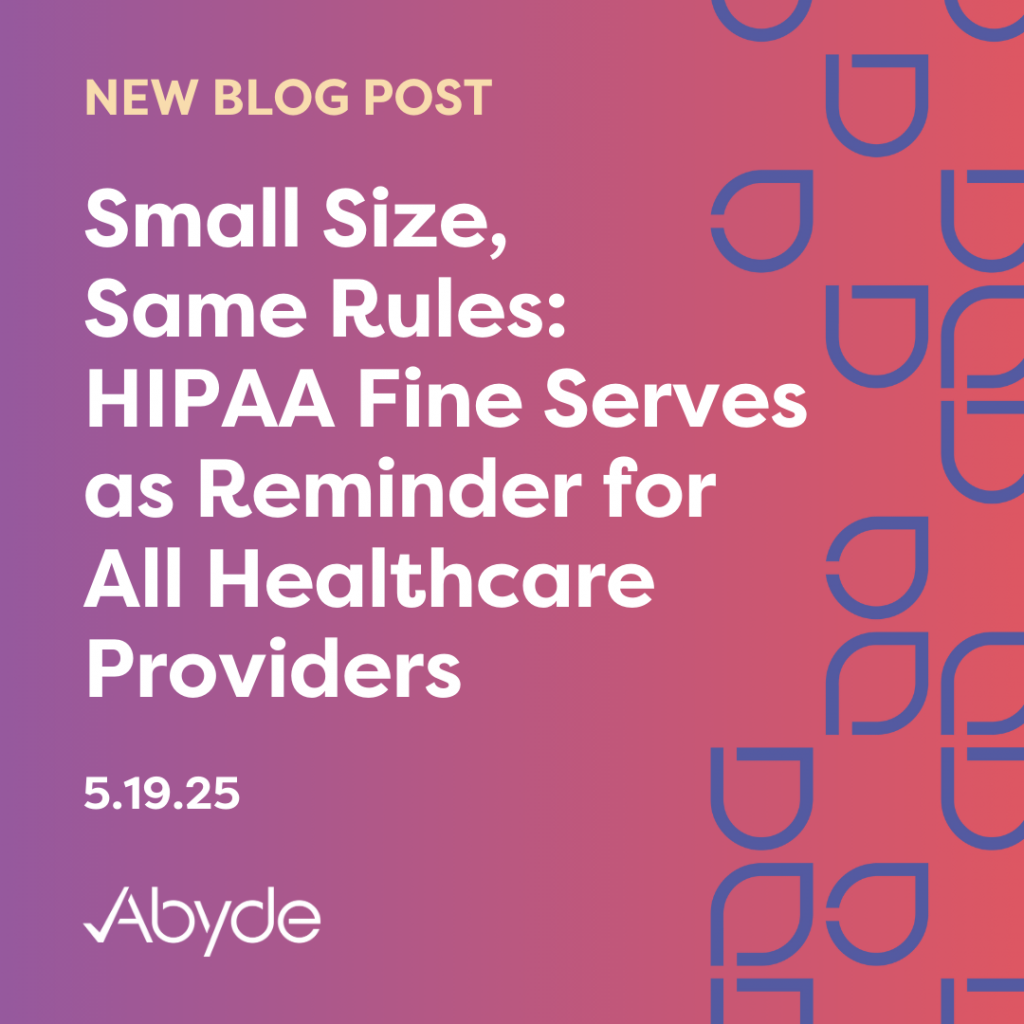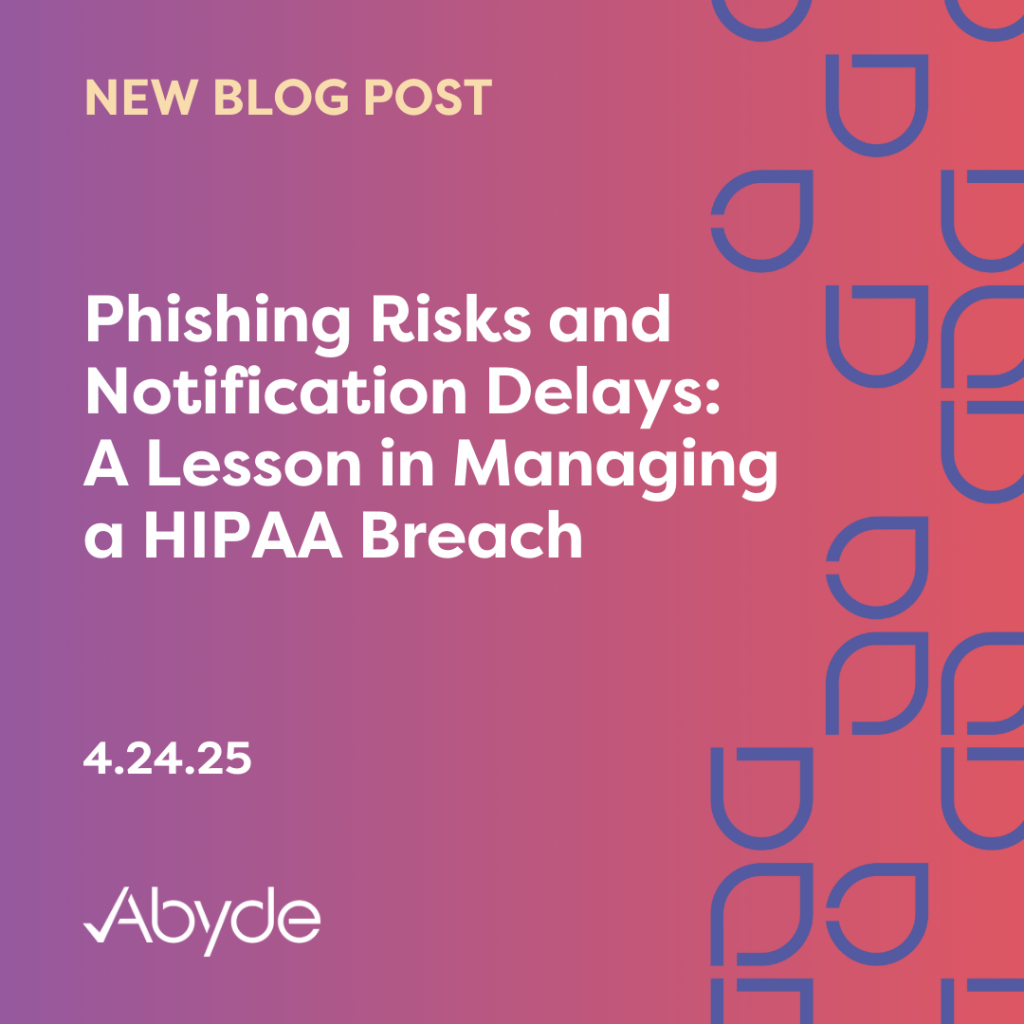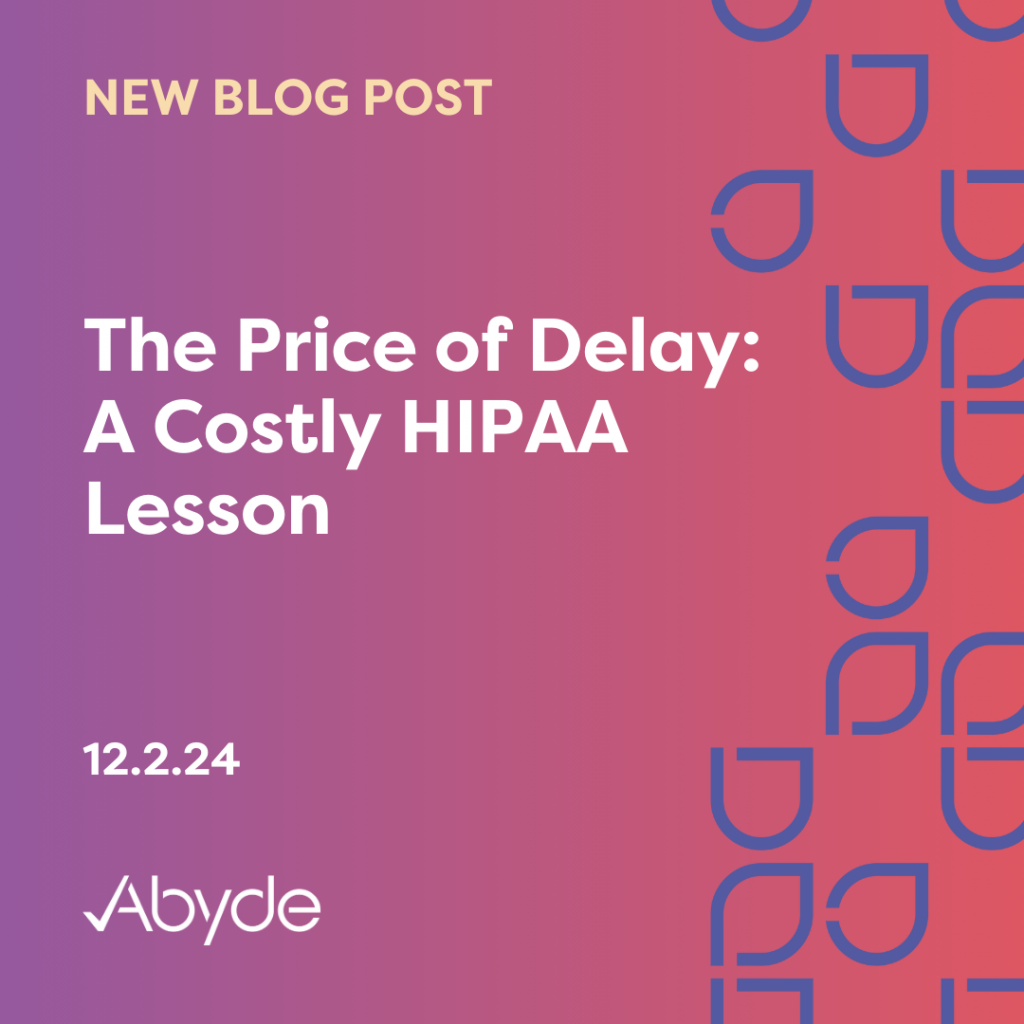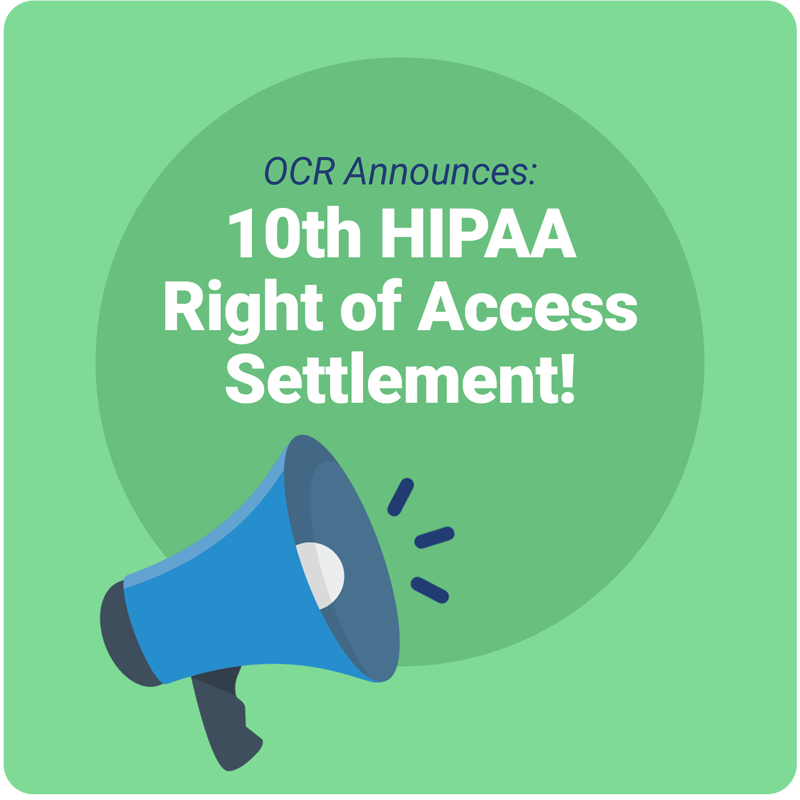May 19, 2025 HIPAA compliance is not just a recommendation; it’s a requirement, no matter how small your organization is. The latest HIPAA fine is a testament to this, with Vision Upright MRI the latest practice to be penalized. The small California MRI center experienced a significant breach, which exposed several violations in the fallout. Acting Office for Civil Rights (OCR) Director Anthony Archeval emphasized the widespread cybersecurity risks, noting that these threats impact healthcare providers of all sizes: “Cybersecurity threats affect large and small covered healthcare providers.” Vision Upright MRI was fined $5,000 and will now face a two-year Corrective Action Plan (CAP), being monitored by the OCR. This fine showcases that no practice, big or small, must be followed to keep patient data safe. What Happened? At the end of 2020, Vision Upright MRI experienced a breach in its systems due to an insecure server. This cybercrime exposed over 21,000 patients’ medical images, leading to the OCR’s investigation. The investigation discovered that the MRI center had never completed a Security Risk Analysis (SRA). The SRA thoroughly examines a practice, reviewing all current safeguards to secure Protected Health Information (PHI). These safeguards can include physical barriers the practice has implemented, like locked doors and alarms, and the administrative techniques the practice follows, like routinely checking access to sensitive patient data. The SRA is critical for a compliant practice and should be completed annually and after any breaches. While the SRA is a fundamental requirement for a practice, it is unfortunately often overlooked. The OCR has implemented a Risk Analysis Initiative to ensure practices are completing this requirement, and has reinstated the audit program, reviewing if regulated entities are maintaining this document. In addition to missing the SRA, Vision Upright MRI did not properly notify affected parties within 60 days, violating the Breach Notification Rule. The Breach Notification Rule requires practices to notify patients within 60 days of discovering a breach, regardless of how many were impacted. This short timeline allows patients to take the necessary precautions for the safety of their data. The practice should also provide credit monitoring. Since this event impacted well over 500 patients, the threshold to consider the situation a large breach, Vision Upright MRI also needed to notify the media and the OCR within a 60-day timeline. Communicating this is imperative, allowing the OCR to swiftly begin its investigation and potentially affected patients to receive information through media channels. These serious missteps led to the monetary settlement and years of government monitoring. Streamlining HIPAA Compliance Even a small practice doesn’t require overwhelming resources to be HIPAA compliant. The right compliance program can simplify HIPAA compliance. With smart solutions, the SRA can be completed easily, reviewing questions and potential vulnerabilities the practice faces. Additionally, breaches can be reported in intelligent software, with compliance experts assisting practices through alerting patients and the OCR. Meet with an expert today to learn how to automate your compliance program.
Phishing Risks and Notification Delays: A Lesson in Managing a HIPAA Breach
4.24.25 As we head into the middle of the year, it’s safe to say that the Office for Civil Rights (OCR) is ramping up enforcement. Since the beginning of this year, over $6M in fines have been levied, with new penalties being announced weekly. The latest fine showcases that the OCR can and will investigate breaches no matter your organization’s size. The latest HIPAA fine was imposed on PIH Health, Inc. (PIH), a California health network comprised of over a hundred health practices throughout the state. PIH’s HIPAA violations have cost the organization $600,000. Due to these violations, the organization will be monitored for two years under a Corrective Action Plan (CAP). These violations exposed numerous shortcomings of the organization due to a phishing attack, emphasizing the importance of thorough safeguards for practices of all sizes. What Happened? In June 2019, a phishing attack compromised 45 PIH employee accounts. This breach devastated an organization with millions of patients, putting nearly 200,000 patients at risk. While the phishing attempt occurred in the summer of 2019, the breach was not reported to affected patients or the OCR until January 2020. When a breach impacts over 500 patients, time is of the essence. Parties must be notified within 60 days of the breach, including widespread press releases for the media. More issues were brought to light once the OCR was aware of this breach. The organization lacked a sufficient Security Risk Analysis (SRA). The SRA is an exhaustive assessment of a practice, reviewing all safeguards and highlighting any vulnerabilities before a breach occurs. This is at the base of a compliant practice, and the OCR has introduced the Risk Analysis Initiative to ensure that practices have this documentation in place. Overall, this successful phishing attempt revealed inadequacies and several HIPAA violations. In addition, the organization’s failure to notify the OCR and patients promptly also contributed to the severity of the fine. Protecting Patient Data The healthcare industry’s sensitive data makes it the prime target for phishing attacks. Healthcare organizations must provide comprehensive staff training to avoid suspicious emails and, in general, risk mitigation techniques. Healthcare practices must always address the breaches quickly. Timely notification of the OCR and affected patients ensures that all parties are aware of the breach’s impact and understand how to monitor their data. No matter the organization’s size, using smart software can help simplify compliance, avoid significant fines, and reduce patient data risk. For example, the SRA can be streamlined with compliance software, ensuring your practice knows the appropriate safeguards before an incident occurs. Intelligent solutions also provide your practice with a centralized compliance hub, letting staff know precisely what they need to secure patient Protected Health Information (PHI). To learn more about how your practice can streamline common HIPAA violations, schedule a meeting with a compliance expert today.
The Price of Delay: A Costly HIPAA Lesson
December 2, 2024 Over a million dollars in HIPAA fines have been levied in the past few months, and like this winter’s snow, the fines continue to pile up, with a $100,000 fine recently announced. Last week, Rio Hondo Community Mental Health Center, an outpatient program managed by the Los Angeles Department of Health, was fined for a Right of Access violation. This marks the 51st enforcement of the Right of Access rule, highlighting the importance of handling patient records in a timely manner. What Happened? A patient requested a copy of their records on March 18, 2020. As we all know, March 2020 was marked by the beginning of the unprecedented COVID-19 virus, which led to the mental health center’s closure after the Governor of California put into action a “stay-at-home” order. However, the center reopened at the beginning of May 2020, allowing some staff to return to the facility. While the patient was told her records would be ready at this time, she was misinformed and began the summer with a flurry of calls and other forms of contact to request her medical records. After her requests were unfulfilled several times, the patient filed a complaint with the Office for Civil Rights (OCR) at the end of August 2020. The OCR then began investigating the Rio Hondo at the beginning of October. The medical records were finally sent on October 20, 2020, 216 days after the first request. The Right of Access rule requires Covered Entities to provide patients with their medical records within 30 days of the initial request. While the medical center was under a “stay-at-home” order during those 30 days, this was still significantly longer than the extension period of an additional 30 days and could have been handled when it was first deemed safe for staff to return to the medical center. This fine comes after a series of Right of Access fines, including another significant fine of $70,000 imposed at the end of October. The numerous fines issued this past year regarding the Right of Access initiative demonstrate the government’s commitment to this important aspect of patients’ rights. Protect Your Practice from Costly Mistakes Even during the peak of the global health crisis, HIPAA regulations stayed in effect. Implementing software solutions can help safeguard your practice. To ensure your staff remains compliant, it is highly recommended to use automated software that keeps you and your team in check, regardless of the circumstances. Schedule a consultation today to learn more about automated compliance for your practice.
OCR Announces 16th Right of Access Settlement
February 12, 2021 Today the Office for Civil Rights (OCR) is celebrating their Sweet 16 – sixteenth HIPAA Right of Access fine, to be exact. Instead of party hats and birthday cake, they’re kicking off the festivities with a hefty settlement and second HIPAA fine this week. The not so lucky guest of honor is Sharp HealthCare, d.b.a. Sharp Rees-Stealy Medical Centers (“SRMC”), a health care provider based out of California. SRMC was gifted with a $70,000 fine along with a 2-year corrective action plan for violating HIPAA right of access requirements. The ‘party’ began back in June of 2019 after the OCR received a complaint stating that SRMC failed to respond when a patient requested an electronic copy of their protected health information (PHI) be sent to a third party (sound familiar?). The ‘party’ didn’t stop there, when even after providing technical assistance the OCR received a second complaint just two months later alleging that SRMC had still yet to provide the requested access. It wasn’t until after the OCR investigated further that SRMC finally fulfilled the patient’s request. Not only did today’s announcement take the cake (party pun intended) for the second fine released just this week, but the details of the most recent settlements are so similar we feel like we’re seeing double. Both fines were a result of patient right of access violations, and more specifically for the failure to provide an electronic copy of health records to a third party. So the lesson to be learned? Ensure your practice is providing access in a timely manner and in the way it was requested. Acting OCR Director, Robinsue Frohboese emphasized the government’s continued focus in today’s press release, “Patients are entitled to timely access to their medical records. OCR created the Right of Access Initiative to enforce and support this critical right.” After a historic year in HIPAA enforcement, four HIPAA settlements in the first two months of 2021 should come as no shock. If crashing the HIPAA violation party isn’t something you’re keen on (we’re not the life of the party ourselves, but even we don’t think that would be too much fun) then having the right policies and procedures in place along with the proper employee training on how to respond to record requests is key.
OCR Announces the 10th HIPAA Right of Access Settlement
November 6, 2020 The Office for Civil Rights (OCR) wasn’t kidding when they emphasized HIPAA Right of Access enforcement last year – if you STILL don’t believe the many (so, so many) blog articles we’ve written on previous fines, maybe today’s 10th fine announcement will do the trick. Patient right of access has been a trending topic (waiting for the hashtag to trend any day now) over the past few months, and the latest settlement is just another reminder of what your practice needs to watch for. Today’s fine goes to Riverside Psychiatric Medical Group (RPMG), out of Riverside, California who agreed to a $25,000 payout and two-year corrective action plan to settle a violation of the Privacy Rule’s patient right of access standard. The latest settlement comes as a result of a patient complaint received just last year, in March of 2019. The complaint claimed that RPMG failed to provide access to requested medical records – even after multiple requests, OCR technical assistance after the first complaint, and a second complaint a month later. In this particular case, unlike other patient right of access fines levied thus far, RPMG claimed they didn’t provide access because the requested records included psychotherapy notes. Psychotherapy notes include documentation of private counseling sessions, separate from regular medical records, and are able to be withheld under HIPAA law because of the nature of the records. So was the practice actually in the wrong? While psychotherapy notes CAN be withheld, HIPAA still requires: Since RPMG failed to do either, they found themselves with $25,000 less in their pockets and two whole years of administrative paperwork to be completed. Even if your practice doesn’t deal with mental or behavioral health services, RPMG’s case includes some important lessons for all types of providers. When records can’t be provided (for legitimate reasons only people) a written explanation and a copy of the records can and should be provided to the patient. No one likes to be left hanging, said best by OCR Director, Roger Severino himself: “When patients request copies of their health records, they must be given a timely response, not a run-around.” Avoid being an enforcement victim by reviewing what your practice has in place now, and what is required when a patient requests their records. Make sure you have a designated method for patients to request records and fulfill their requests within the right time frame – within 30 days at the federal level, though it varies by state. And just in case you’re keeping score (just us?) this fine brings 2020’s running total to $13,211,500.




